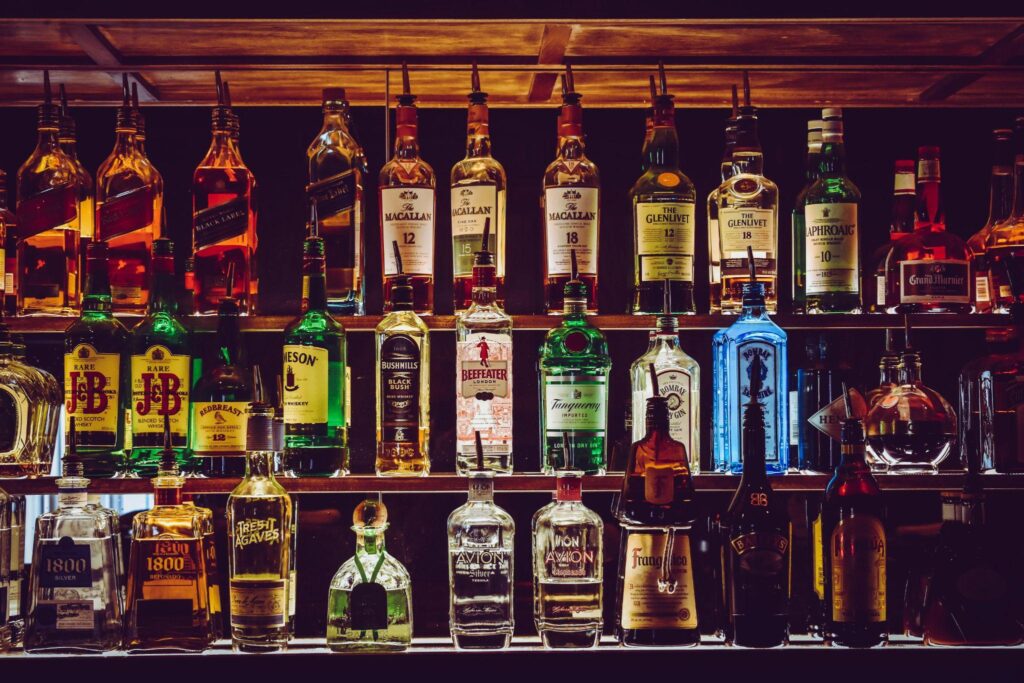In the ever-evolving landscape of alcoholic beverages, hard seltzers have gained significant attention, often marketed as a healthier alternative due to their lower calorie and carbohydrate content. However, it is essential to critically analyze this assertion. Are hard seltzers truly a healthier choice, or is this just another marketing gimmick? Although they may contain fewer calories and carbohydrates than traditional alcoholic beverages, the inherent risks associated with alcohol consumption cannot be overlooked. Let’s delve into a journey to explore the hard truth about hard seltzers, their nutritional content, and the potential health implications.
Understanding Hard Seltzers
The allure of hard seltzers lies not only in their effervescent charm but also in the prevalent notion of them being a healthier alternative to other alcoholic beverages, a claim that warrants a closer, more analytical examination. The seltzer production process is a key factor in this perception. Unlike traditional alcoholic drinks, hard seltzers are typically made by fermenting cane sugar or malted barley, which results in a beverage low in calories and carbohydrates.
In addition to this, the flavor variety exploration in hard seltzers has made them an attractive option to a wider audience. They come in an array of flavors from natural fruit extracts, which contribute to the perception of them being a healthier option. The blend of sparkling water, alcohol, and a hint of natural fruit flavor appeals to those who seek a lighter, more invigorating alternative to beer, wine, or spirits.
However, it is important to scrutinize these claims from a scientific perspective. While hard seltzers may indeed be lower in calories and carbohydrates compared to other beverages, the impact of the alcohol content on health should not be neglected. Hence, the notion of hard seltzers being a ‘healthier’ choice requires further examination.
Marketing Versus Reality
Revealing the veil of marketing strategies, it becomes clear that the health claims surrounding hard seltzers often blur the line between perception and reality. This promotional deception manipulates the health perception of consumers, leading them to believe that these beverages are a healthier alternative to traditional alcoholic drinks.
Research indicates that marketing campaigns often emphasize low-calorie content, gluten-free properties, and natural ingredients, strategically diverting attention from the potential health risks associated with alcohol consumption. This clever marketing rhetoric, combined with trendy packaging and social media endorsements, notably influences consumer behavior.
Moreover, these hard seltzers are often marketed as ‘healthier’ due to their lower sugar and calorie content. However, it’s essential to point out that ‘lower’ does not equate to ‘low’. A lower calorie intake does not necessarily translate to better health, particularly when considering alcohol’s impact on the liver, heart, and other organs.
Nutritional Breakdown of Hard Seltzers
To fully grasp the health implications of consuming hard seltzers, it’s imperative to dissect their nutritional profile. Seltzer ingredients are relatively straightforward, typically composed of carbonated water, alcohol derived from fermented sugars, and flavorings. However, the nutritional content can vary greatly depending on flavor varieties and the brand.
Typically, a standard 12-ounce serving of hard seltzer contains around 100 calories, 2 grams of carbohydrates and less than 1 gram of sugar, making it a lower-calorie and lower-carb option compared to other alcoholic beverages. This is largely due to the use of fermented sugars as opposed to traditional grain alcohol, which results in lower carbohydrate content.
However, it’s essential to note that the lack of sugar does not automatically make hard seltzers a ‘healthy’ choice. Despite the lower calorie count, they still contain alcohol, which can have detrimental health effects when consumed in excess.
Moreover, the flavorings added to hard seltzers can also contain artificial ingredients that may pose additional health risks. Hence, while hard seltzers may be a lower-calorie alcoholic option, they are not necessarily a healthier choice.
Comparing to Other Alcoholic Beverages
When evaluating the potential health impacts of hard seltzers, it’s important to compare them with other popular alcoholic beverages, analyzing factors such as caloric and sugar content, and the presence of artificial additives. For instance, a standard 12-ounce serving of hard seltzer typically contains around 100 calories and 2 grams of sugar, much lower than beer, wine, or mixed cocktails.
The seltzer production process contributes to this lower calorie count. Fermented cane sugar is used as the alcohol base, resulting in a cleaner, less caloric product. Flavor variety exploration in hard seltzers also leans towards natural essences, posing limited health risks compared to artificial flavorings prevalent in other alcohols.
However, it’s important to understand that while hard seltzers may be a lower calorie option, they are not a health drink. The primary concern remains their alcohol content. Though caloric intake and sugar content are important factors in determining the health impact of a drink, the effects of alcohol on the body should not be underestimated.
Hence, while hard seltzers may offer a healthier alternative to other alcoholic beverages in certain aspects, they should still be consumed responsibly.
Potential Health Implications
Despite their lower caloric and sugar content, the health implications of hard seltzers largely stem from their alcohol content, which can lead to various short-term and long-term health risks if consumed excessively. Regular or heavy consumption can lead to alcohol dependency, or seltzer addiction, which carries a host of physical, psychological, and social consequences.
Research shows that alcohol, regardless of its form, has detrimental effects on the liver, cardiovascular system, and brain when consumed in large quantities over extended periods. Even though hard seltzers may seem like a healthier option due to their lower calorie and sugar content, they can still contribute to these health risks if consumed excessively.
Furthermore, the light, invigorating taste of hard seltzers can make it easy to consume more than intended, potentially leading to acute issues such as alcohol poisoning or chronic problems like addiction. The packaging of these beverages, often in larger cans, can also encourage overconsumption.
While hard seltzers may have a healthier image, it’s important to understand their potential health implications.
Making Informed Drinking Choices
To make informed drinking choices, one must first comprehend the alcoholic content in hard seltzers, which varies greatly across brands.
A nutritional comparison analysis, juxtaposing hard seltzers with other alcoholic beverages, is also essential in this decision-making process.
Through this, consumers can better understand the health implications of their choices, and navigate the world of hard seltzers with increased knowledge and confidence.
Understanding Alcoholic Content
Delving into the alcoholic content of hard seltzers, it’s imperative for consumers to make informed drinking choices based on factual, research-backed information. The alcohol in hard seltzers typically derives from fermented cane sugar, yielding an alcoholic content around 5%. This percentage is almost equivalent to most beers, and notably less than wines and liquors. However, the deceptively light and invigorating taste can lead to higher consumption, potentially raising concerns about alcohol addiction.
This seemingly innocuous drinking habit can have serious social implications. Excessive consumption can lead to physical and psychological dependencies, profoundly affecting an individual’s personal, professional, and social life. Additionally, the low-calorie, fruit-flavored appeal of hard seltzers may attract younger and health-conscious demographics, who may not fully understand the potential risks associated with alcohol consumption.
Therefore, it’s critical to comprehend the alcoholic content in hard seltzers and not underestimate its effects due to its lighter taste profile. Acknowledging this fact can help in controlling consumption, thereby preventing any potential adverse effects associated with alcohol addiction. Ultimately, being informed enables healthier and more responsible drinking choices.
Nutritional Comparison Analysis
Analyzing the nutritional profiles of various alcoholic beverages, it becomes evident that hard seltzers tend to stand out as a potentially healthier choice. The key lies in the seltzer ingredients and seltzer production process, which prioritize minimalism and purity.
To paint a clearer picture, let’s consider the following data:
– *Caloric Content*: Hard seltzers generally contain fewer calories than other alcoholic beverages. A typical hard seltzer may contain as little as 100 calories per can, notably less than beer, wine, or mixed drinks.
– *Carbohydrate Count*: The seltzer production process often leads to a beverage low in carbohydrates. Most brands have less than 3 grams per serving, making them a suitable choice for those on low-carb diets.
– *Additive and Preservative Use*: Unlike many alcoholic beverages, hard seltzers typically lack additives and preservatives. This is due to the simple seltzer ingredients: water, alcohol from fermented sugar, and fruit flavoring.
The above data does not imply that hard seltzers are ‘health drinks’. They’re still alcoholic beverages. However, their nutritional profile can serve as a guide for those wanting to make more informed drinking choices.

Final Thoughts
To sum up, despite hard seltzers’ marketing strategies emphasizing their lower calorie and carbohydrate content compared to traditional alcoholic beverages, they are not devoid of health risks. Their appeal should not overshadow the potential implications associated with alcohol consumption.
Consumers must exercise discernment, understanding that moderation and responsible drinking are essential to minimize potential health hazards.
A thorough understanding of the nutritional breakdown of these beverages aids in making informed decisions.
If you or someone you care about is struggling with substance abuse, remember that help is readily available. At BlueCrest Health Group, we offer comprehensive substance abuse treatment tailored to meet individual needs, fostering recovery and hope. Our team of dedicated professionals is committed to providing the support, guidance, and resources necessary to navigate the journey to sobriety.
Frequently Asked Questions
Do Hard Seltzers Contain Any Artificial Sweeteners or Preservatives?
Hard seltzers’ ingredients vary by brand; some may use artificial sweeteners or preservatives, others prefer natural sweetener alternatives. It is crucial to research and understand the product’s nutritional information to make sure it aligns with your health preferences.
Can Hard Seltzers Contribute to Weight Gain?
Yes, hard seltzers can contribute to weight gain. Despite their hydration properties, the alcohol content can lead to dehydration, triggering overeating. Additionally, they contain calories which, in excess, can lead to increased body weight.
Are There Any Gluten-Free Hard Seltzers Available in the Market?
Yes, several gluten-free hard seltzers are available, owing to seltzer production methods that utilize gluten-free grains. Seltzer taste profiles may vary, but gluten-free options provide an alternative for those with dietary restrictions.
How Does the Alcohol Content in Hard Seltzers Compare to Beer and Wine?
Hard seltzers, typically produced through a seltzer fermentation process, generally contain less alcohol compared to beer and wine. However, individual alcohol absorption rates can vary, affecting the perceived intoxication level from these beverages.
Are Hard Seltzers Suitable for People on a Low-Carb Diet?
Hard seltzers, due to their low-carb content, can be suitable for those on a low-carb diet. Their variety in flavor and seltzer hydration properties also make them an appealing alternative to traditional alcoholic beverages.

